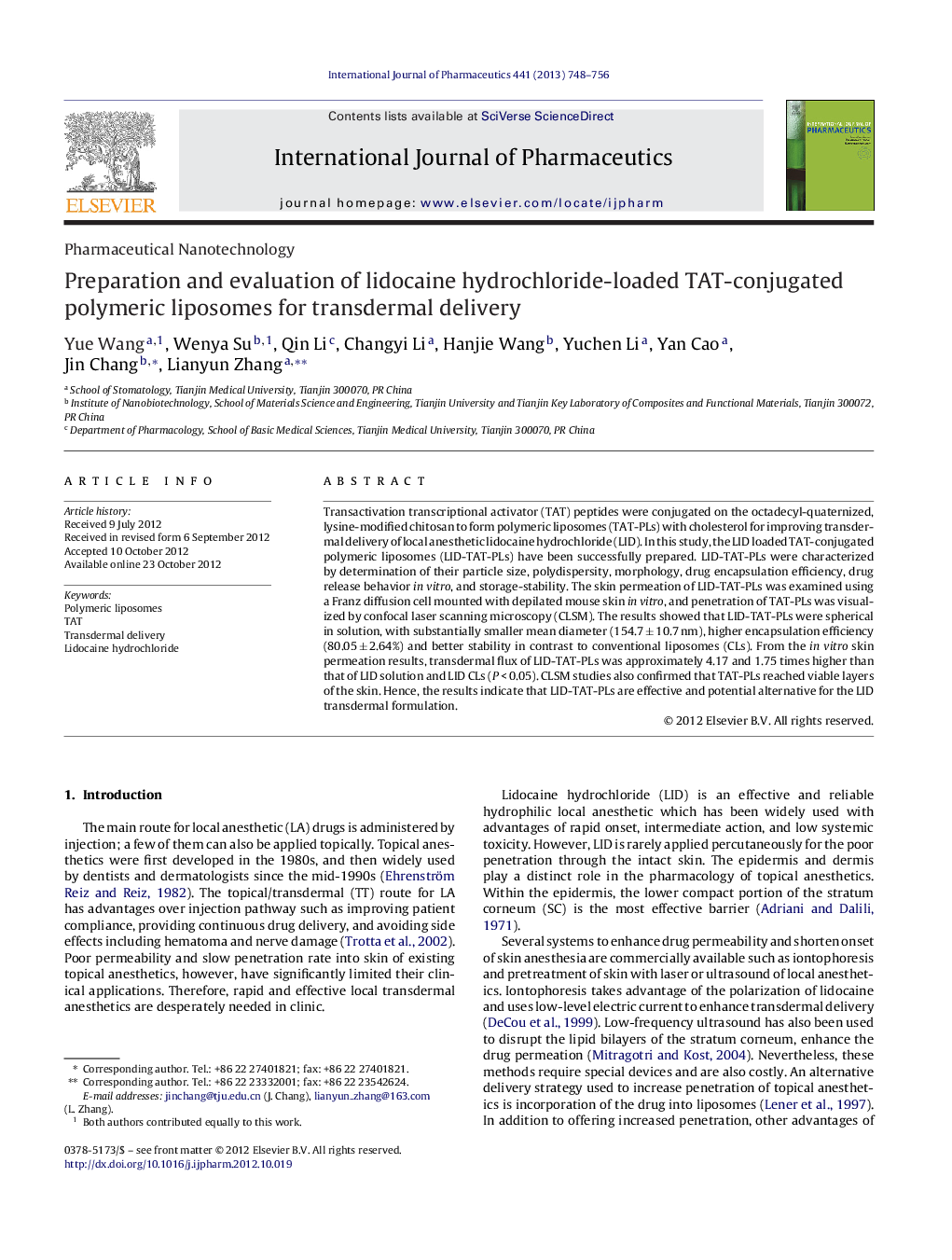| Article ID | Journal | Published Year | Pages | File Type |
|---|---|---|---|---|
| 5820351 | International Journal of Pharmaceutics | 2013 | 9 Pages |
Transactivation transcriptional activator (TAT) peptides were conjugated on the octadecyl-quaternized, lysine-modified chitosan to form polymeric liposomes (TAT-PLs) with cholesterol for improving transdermal delivery of local anesthetic lidocaine hydrochloride (LID). In this study, the LID loaded TAT-conjugated polymeric liposomes (LID-TAT-PLs) have been successfully prepared. LID-TAT-PLs were characterized by determination of their particle size, polydispersity, morphology, drug encapsulation efficiency, drug release behavior in vitro, and storage-stability. The skin permeation of LID-TAT-PLs was examined using a Franz diffusion cell mounted with depilated mouse skin in vitro, and penetration of TAT-PLs was visualized by confocal laser scanning microscopy (CLSM). The results showed that LID-TAT-PLs were spherical in solution, with substantially smaller mean diameter (154.7 ± 10.7 nm), higher encapsulation efficiency (80.05 ± 2.64%) and better stability in contrast to conventional liposomes (CLs). From the in vitro skin permeation results, transdermal flux of LID-TAT-PLs was approximately 4.17 and 1.75 times higher than that of LID solution and LID CLs (P < 0.05). CLSM studies also confirmed that TAT-PLs reached viable layers of the skin. Hence, the results indicate that LID-TAT-PLs are effective and potential alternative for the LID transdermal formulation.
Graphical abstractDownload high-res image (274KB)Download full-size image
